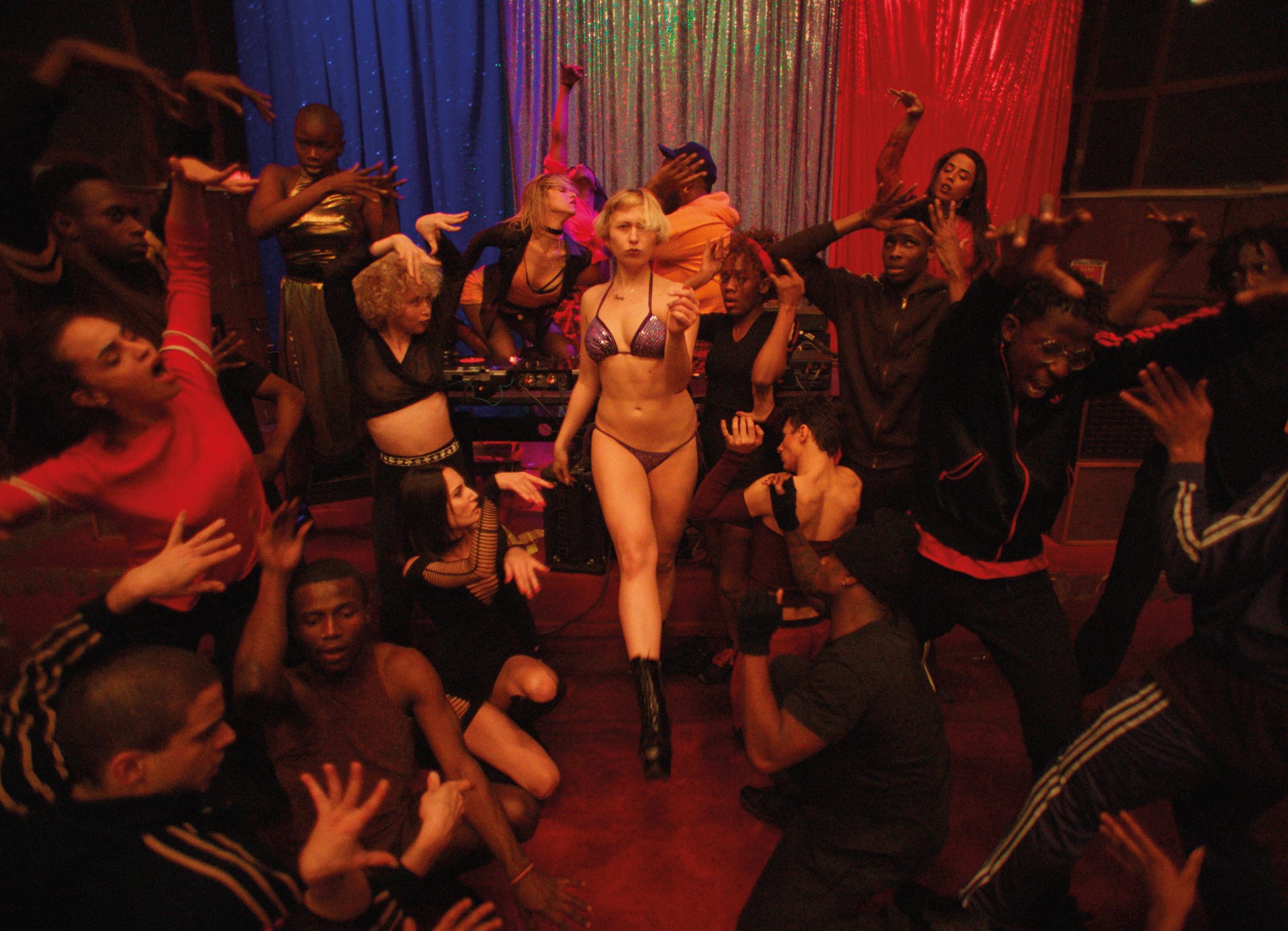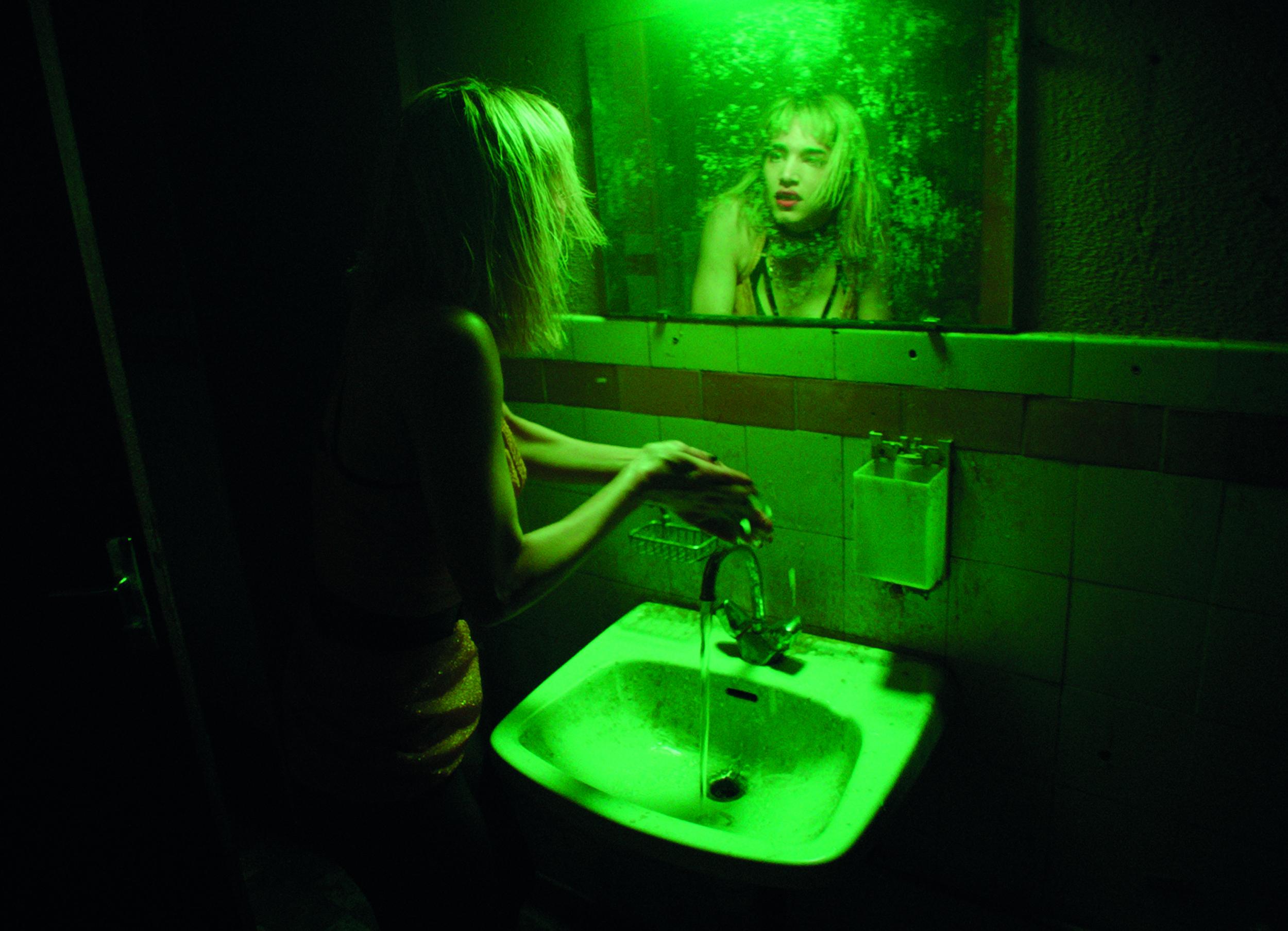Gaspar Noe interview: ‘The demonisation of nudity is sending Western society back to the 19th century’
The Argentine director on sex, drugs and our repressive culture, plus his wild, orgiastic new film 'Climax'

Your support helps us to tell the story
From reproductive rights to climate change to Big Tech, The Independent is on the ground when the story is developing. Whether it's investigating the financials of Elon Musk's pro-Trump PAC or producing our latest documentary, 'The A Word', which shines a light on the American women fighting for reproductive rights, we know how important it is to parse out the facts from the messaging.
At such a critical moment in US history, we need reporters on the ground. Your donation allows us to keep sending journalists to speak to both sides of the story.
The Independent is trusted by Americans across the entire political spectrum. And unlike many other quality news outlets, we choose not to lock Americans out of our reporting and analysis with paywalls. We believe quality journalism should be available to everyone, paid for by those who can afford it.
Your support makes all the difference.To call Gaspar Noé a provocateur is to incorrectly assume he gives a damn about the viewer’s reaction. The Argentine who directed the controversial 2002 revenge thriller Irreversible, with its graphic 10-minute rape scene, has said that he never thinks of an audience when making a film – the focus is always on his own enjoyment. It just so happens that his pleasures seem to be scraped from the darkest corners of the human soul.
His startling new film, Climax, centres on the final night of a dance troupe’s rehearsals in rural France (it’s based on a true story, according to Noé). The dancers decide to hold a low-key party, where they relax, drink, smoke cigarettes, spin vinyl, and flirt. But someone has spiked the sangria with LSD. Rivalries are brought to the boil and lusts are indulged as the dance floor descends into a bloodbath.
Though I sense that the 54-year-old would like Climax to be regarded as a dance film, it is dragged by the hair towards carnal desire ceaselessly, and indeed sex has been a preoccupation in all of his movies. It must be of concern to him then, that depictions of sex on screen have become routinely subject to what might favourably be described as ethical audit – or less so, as policing – by critic and viewer alike in recent years.
“I used to love erotic movies like Black Emanuelle [1975] when I was a teenager,” he says. Noé – small, abundantly moustached, and with a shaved head – is somewhat skittish, his eyes roving the room. “I used to buy magazines like Mayfair, Playboy etc. To get horny, of course, but also because of the beauty of these girls, they made me want to grow up and become a man, and for me that was like clear water coming from the mountain.
“Nowadays even the representation of female or male nudity has been demonised. In many ways western societies are going back to the 19th century or towards more repressive cultures with religious origins.”
Noé sees this trend as paradoxical given the very positive increasing acceptance of LGBT+ identities.
“It’s much easier for people to be homosexual or bisexual or polysexual or whatever, now – people have more sexual freedom – but the representation of sex is becoming problematic.”

It didn’t stop Noé making the 2015 3D sex odyssey, Love (stylised LOVE, and in white ejaculate no less) – currently available on Netflix – which features a series of long explicit scenes. Noé is similarly graphic in his treatment of violence in both Irreversible and his debut film about a murderous, incestuous butcher (I Stand Alone, 1998). In Climax, he deals with hallucinogenic experiences in lurid detail, although, he notes, “Dancers don’t really do drugs. People in the fashion industry are all coke heads, but when you see dancers, they care about their bodies and what they eat and drink.”
He takes a sip from a bottle of coconut water, their clean living clearly having rubbed off on the filmmaker, who previously copped to downing entire bottles of vodka in one sitting. He got the cast into the dissociative, “druggy psychosis” mindset, he says, by preparing a “collection of the best videos we could find on the web of people high on crack, high on ecstasy, high on acid.” The dancers were encouraged to take whatever experiential aspects stuck out to them from the videos and run with them in the film. “One of them said, ‘I want to scream ‘mummy, mummy, mummy,’ another wanted to get naked, another just wanted to put a wig on... I said, ‘be my guest.’”
Plucked from Parisian krump battles, voguing balls and YouTube dance videos, the unknown cast were only too happy to go with Noé on this journey, this excavation of the mind, with the exception of very much known lead actor Sofia Boutella (The Mummy, Star Trek Beyond) who required some convincing.
“She was a bit worried; she said, ‘What’s the script? What’s the lines?’ I said, ‘There are none.’” Boutella’s hesitance was understandable – Climax was directed from just a one-page outline. “I understand that for an actor you don’t want to be part of something that you don’t know what it is,” Noé told her, “but I just had to say, ‘Trust me...'’’

Trust him, she did. Boutella gives a committed and full-throated performance as gregarious dancer Selva, who tries – largely in vain – to help her fellow victims through the various psychosexual traumas that the acid serves as a catalyst for, before ultimately getting lost in her own.
Harnessing long takes and ditching the heavy 3D camera he used on Love, Noé roved the dance floor freely, circling the dancers with a lightweight camera rig and occasionally filming them upside down. Climax was shot chronologically, the director warning his cast the “real” movie would begin in the second week of production when the drugs would hit the characters. “We had like an hour and a half of people going totally nuts,” he recalls fondly of one particular night shoot, the more “psychotic performances” generally coming after the sun had set.
It’s Noé’s best film, a surprisingly zippy 96-minuter set to a pumping 1990s soundtrack and replete with deranged, engaging performances by a majority non-actor cast of dancers. It’s also devoid of cinematic acid clichés. There are no rainbow hued hallucination visuals here, the trips being experienced voyeuristically as opposed to from inside the mind of the addled. Noé points out he has already been down the hallucinatory rabbit hole, with his 2009 psychedelic melodrama Enter the Void.

Fortunately, Noé’s unwitting trippers are so far gone that their collective mania is impossible to stop watching. It’s to the director’s credit that he drew out such authentic performances from a cast who were not psychedelically-inclined nor experienced.
Climax is a daring film and, for Noé, a fundamentally European one. “This movie could never happen in the States,” he says. “Never ever.”
He cites Hollywood’s financing system and overabundance of interfering agents and distributors as reasons for this, but also its recent heightened awareness of identity politics.
“In Climax there are all kinds of colours of skin, all kinds of genders, sexual preferences – but I don’t care, I chose my favourite dancers,” he says. “In America, if you put someone who’s from one community [on screen] you have to have a message for that community or be a part of it.
“In my movie the characters are all good and bad people, there’s no one character who is more moral than the others; they’re just animals, in danger. There’s no speech about communities in my movies, that’s what I like: this movie would be impossible elsewhere.”
Climax is in UK cinemas on 21 September
Join our commenting forum
Join thought-provoking conversations, follow other Independent readers and see their replies
Comments